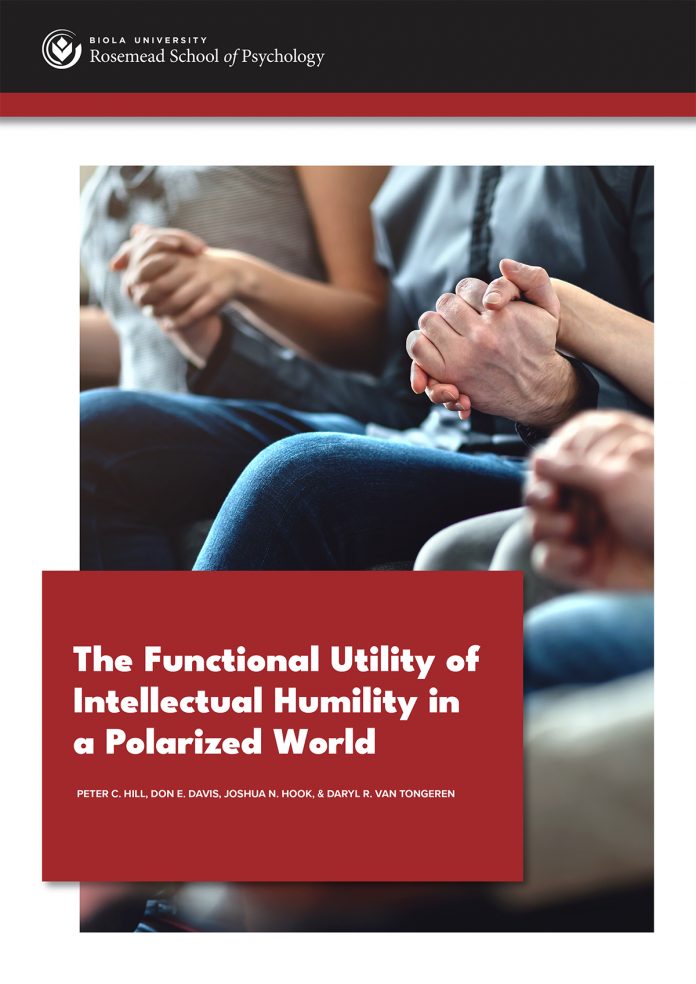Dr Hill discusses his research interests into the psychology of religion and its impact on healthy wellbeing
Peter C. Hill, Ph.D., is Director of the Office of Academic Research and Grants at Biola University in La Mirada, California with a joint appointment at Biola’s Rosemead School of Psychology. He is an active researcher in social psychology with most of his efforts directed toward applying social psychological principles to the psychology of religion. He is a past president of the Society for the Psychology of Religion and Spirituality (Division 36 of the American Psychological Association) and was elected Fellow of the APA in 1998. He has authored approximately 150 articles in peer-reviewed journals and book chapters and has co-authored or co-edited several books including Measures of Religiosity (1999), the Baker Encyclopedia of Psychology (1999), The Psychology of Fundamentalism: An Intratextual Approach (2005), and the best-selling psychology of religion textbook now in its fifth edition The Psychology of Religion: An Empirical Approach (2018).
Psychology of religion
His research interests in the psychology of religion are varied but have focused primarily in three areas: 1) positive psychological virtues such as humility, gratitude, and forgiveness, 2) religious fundamentalism, and 3) religious/spiritual measurement.
- Development of Positive Virtues
While few would question the value of developing a healthy positive character, it is not clear just what that means. By drawing on moral philosophy, Hill has tackled the question of what it means to be a virtuous person. He has identified a number of dimensions to the concept of virtue including an integrated ethical value system, an embodied set of character traits, a source of strength and resilience, a contributor to meaning and purpose, and a cognitive capacity for wisdom that is embedded within a cultural context. Hill has maintained that religious traditions have the potential for both good and bad in developing virtuous character. While studying the concept of virtue to such traits as forgiveness and gratitude, the topic to which he has devoted the greatest attention is humility, both as a general characteristic and as it applies to the intellectual realm.
- Religious Fundamentalism
In 2005 Hill co-authored The Psychology of Religious Fundamentalism which has generated considerable interest in the psychology of religion. In contrast to a prevailing view that religious fundamentalism is a militant outdated reaction to modern culture, Hill and his co-authors authors argued that fundamentalism is best understand as an intratextual search for meaning, whereby a single sacred text (written or oral) is the authoritative guide to which all other forms of knowledge must subordinate. While not providing a defense of fundamentalism, the approach they took suggested that if researchers and policy makers are to better understand and address challenges posed by religious extremism, they must do so first by studying the beliefs and attitudes on their terms rather than on the terms of those outside their traditions.
- Religious/Spiritual Measurement
Measurement is not the most exciting topic, but the ability to reliably measure is a key indicator of the maturity of a field of scientific study. To this end, Hill has invested much of his time looking at measurement issues and have tried to provide resources for researchers to use existing measures rather than needlessly developing new measures.
In 1999 he co-edited a volume entitled Measures of Religiosity, a compendium of reviews of over 125 measures of religious experience. The book has been widely used by researchers, clergy and denominational leaders. He is currently under contract to finish an updated volume in 2023 that will provide reviews of over three hundred measures include those that focus on contemporary notions of spirituality. Deserving special mention is an article that he co-authored in the American Psychologist where it was contended that there is now a sufficient arsenal of measurement instruments that can begin to uncover the functional value of religion and spirituality, particularly in relation to mental and physical health.















